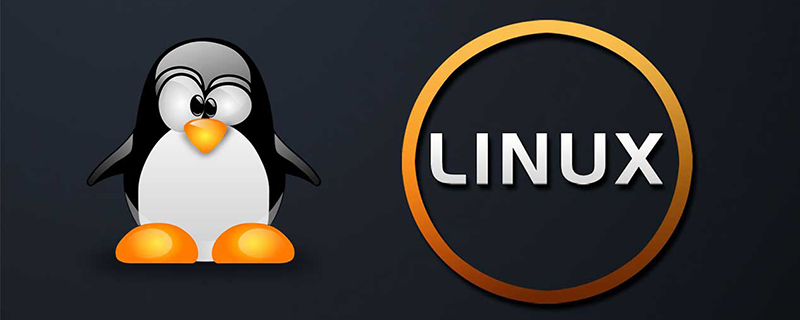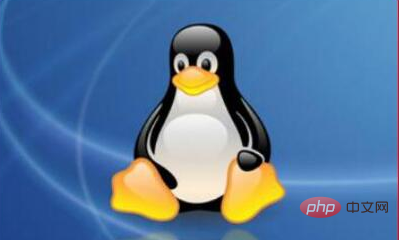 Operation and Maintenance
Operation and Maintenance
 Linux Operation and Maintenance
Linux Operation and Maintenance
 Introduction to the differences between various linux systems
Introduction to the differences between various linux systems
Introduction to the differences between various linux systems

1. Ubuntu
Ubuntu is well known as the best LinuxServerDistro, which can provide you with an excellent user experience.
If you are new to the Linux world, it would be best to choose Ubuntu as your server distribution. Using this server you can do anything like starting a web server, deploying containers, etc.
It is perfect as a media server, email server or game server.
2. CentOS
CentOS is one of the best Linux server distributions used in the world, accounting for 30% of the world's Linux servers. It is a derivative of RedHat EnterpriseLinux and provides a stable server environment.
Recommended video tutorials related to Linux: linux video tutorials
3. Debian
Debian is known as the king of Linux distributions and is currently the most popular Linux server distribution. It was originally launched in 1993. It is the most commonly used Linux server, even Ubuntu is based on Debian.
It provides various package managers, various API tools, etc. You will notice that the server using it is more secure and stable. Now let us see its useful features.
4. OpenSUSELeap
OpenSUSE is one of the most commonly used Linux server operating systems first introduced in 1993.
There are two main variants of OpenSuse, they are Leap and Tumbleweed. OpenSUSELeap is the most stable. This server can be easily used as a web server, home server and both. Versatility features are very useful in any server distribution.

5. Fedora
Fedora is one of the best Linux server distributions, which contains experimental technologies developed for commercial Linux distributions. For users who are new to the Linux world, this is a completely new Linux server operating system. It supports various desktop environments, including Gnome, KDE, etc.
6. RedHatEnterpriseLinux
RedHatEnterpriseLinux is one of the most popular Linux server operating systems, and almost all Linux components and various software can be easily used on it. Additionally, 500 companies worldwide use its services. There are various servers on it, such as production servers, enterprise servers, etc.
7. OracleLinux
OracleLinux is one of the best Linux server distributions.
There are two kernels in Oracle, one is RedHat compatible kernel (RHCK) and the other is RedHat Enterprise Linux (RHEL). Both systems work well with different hardware, such as Lenovo, HP, IBM, etc.
8, Mageia
If you are looking for a safe and stable Linux server, Mageia will be your best choice.
It was first released in 2010 and now it is a fork of Mandriva. Mageia includes some of the best desktop environments such as GNOME, KDE, LXDE and Xfce.
9. ArchLinux
ArchLinux is a more flexible platform and is very popular among users. It is a fully customized Linux distribution that comes with some great features. Administrators can use it to quickly set up server applications as it provides a flexible and stable environment.
10. Slackware
Slackware is a long-standing Linux server distribution that will ensure you stability and simplicity, first released in 1993.
Slackware is a very lightweight Linux server, which is why it mainly uses Pentium systems. Slackware comes with XWindow system, Web server, mail server, C++ and news server.
Recommended related articles and tutorials: linux tutorial
The above is the detailed content of Introduction to the differences between various linux systems. For more information, please follow other related articles on the PHP Chinese website!

Hot AI Tools

Undresser.AI Undress
AI-powered app for creating realistic nude photos

AI Clothes Remover
Online AI tool for removing clothes from photos.

Undress AI Tool
Undress images for free

Clothoff.io
AI clothes remover

Video Face Swap
Swap faces in any video effortlessly with our completely free AI face swap tool!

Hot Article

Hot Tools

Notepad++7.3.1
Easy-to-use and free code editor

SublimeText3 Chinese version
Chinese version, very easy to use

Zend Studio 13.0.1
Powerful PHP integrated development environment

Dreamweaver CS6
Visual web development tools

SublimeText3 Mac version
God-level code editing software (SublimeText3)

Hot Topics
 Linux Architecture: Unveiling the 5 Basic Components
Apr 20, 2025 am 12:04 AM
Linux Architecture: Unveiling the 5 Basic Components
Apr 20, 2025 am 12:04 AM
The five basic components of the Linux system are: 1. Kernel, 2. System library, 3. System utilities, 4. Graphical user interface, 5. Applications. The kernel manages hardware resources, the system library provides precompiled functions, system utilities are used for system management, the GUI provides visual interaction, and applications use these components to implement functions.
 How to run java code in notepad
Apr 16, 2025 pm 07:39 PM
How to run java code in notepad
Apr 16, 2025 pm 07:39 PM
Although Notepad cannot run Java code directly, it can be achieved by using other tools: using the command line compiler (javac) to generate a bytecode file (filename.class). Use the Java interpreter (java) to interpret bytecode, execute the code, and output the result.
 How to check the warehouse address of git
Apr 17, 2025 pm 01:54 PM
How to check the warehouse address of git
Apr 17, 2025 pm 01:54 PM
To view the Git repository address, perform the following steps: 1. Open the command line and navigate to the repository directory; 2. Run the "git remote -v" command; 3. View the repository name in the output and its corresponding address.
 The difference between laravel and thinkphp
Apr 18, 2025 pm 01:09 PM
The difference between laravel and thinkphp
Apr 18, 2025 pm 01:09 PM
Laravel and ThinkPHP are both popular PHP frameworks and have their own advantages and disadvantages in development. This article will compare the two in depth, highlighting their architecture, features, and performance differences to help developers make informed choices based on their specific project needs.
 How to use VSCode
Apr 15, 2025 pm 11:21 PM
How to use VSCode
Apr 15, 2025 pm 11:21 PM
Visual Studio Code (VSCode) is a cross-platform, open source and free code editor developed by Microsoft. It is known for its lightweight, scalability and support for a wide range of programming languages. To install VSCode, please visit the official website to download and run the installer. When using VSCode, you can create new projects, edit code, debug code, navigate projects, expand VSCode, and manage settings. VSCode is available for Windows, macOS, and Linux, supports multiple programming languages and provides various extensions through Marketplace. Its advantages include lightweight, scalability, extensive language support, rich features and version
 What is the main purpose of Linux?
Apr 16, 2025 am 12:19 AM
What is the main purpose of Linux?
Apr 16, 2025 am 12:19 AM
The main uses of Linux include: 1. Server operating system, 2. Embedded system, 3. Desktop operating system, 4. Development and testing environment. Linux excels in these areas, providing stability, security and efficient development tools.
 laravel installation code
Apr 18, 2025 pm 12:30 PM
laravel installation code
Apr 18, 2025 pm 12:30 PM
To install Laravel, follow these steps in sequence: Install Composer (for macOS/Linux and Windows) Install Laravel Installer Create a new project Start Service Access Application (URL: http://127.0.0.1:8000) Set up the database connection (if required)
 git software installation
Apr 17, 2025 am 11:57 AM
git software installation
Apr 17, 2025 am 11:57 AM
Installing Git software includes the following steps: Download the installation package and run the installation package to verify the installation configuration Git installation Git Bash (Windows only)





